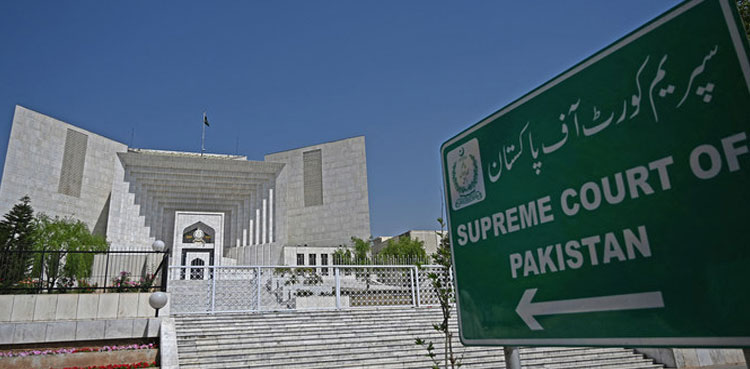ISLAMABAD: The Supreme Court (SC) of Pakistan on Thursday issued its 23-page detailed judgment in the Article 63-A interpretation case, ruling the earlier verdict against the clear language and mandate of the constitution, ARY News reported.
A five-member SC bench headed by Chief Justice of Pakistan (CJP) Qazi Faez Isa and comprising Justice Aminud Din Khan, Justice Jamal Khan Mandokhel, Justice Mazhar Alam Miankhail, and Justice Naeem Afghan through a short order issued on October 2 annulled its 2022 verdict that barred lawmakers from going against party directions when voting in parliament.
In its detailed judgment, the SC ruled that its earlier verdict opened the way to transform the leader of a political party into a ‘dictator’.
“Nothing can be more undemocratic; the majority’s judgment has opened the way to transform the leader of a political party into a dictator, simply because the party’s leader can never be challenged,” the detailed judgment read.
“The majority’s judgment (in 2022) interestingly referred to decisions from a number of countries and forums, including from the United States of America, Canada, United Kingdom, India, and the Privy Council. Foreign legal books and authors were also quoted. But, this appears to have been done, without first ascertaining the law in the respective countries regarding defections, and the consequences thereof.”
The detailed judgment read that the court sought the assistance of counsel for briefing on the international position on defections and its consequences. “Learned senior counsel Mr. Farooq H. Naek and the learned AAG have submitted documents through applications showing the prevalent worldwide practice (CMAs No. 10233 and 10234 of 2024). They state that voting, or abstaining to vote, contrary to the party or its leader’s direction does not result in automatic disqualification in any country of the world. The learned AAG pointed out that an automatic disqualification law was enacted in Papua New Guinea, but its Supreme Court (in Reference No. 11 of 2008) struck it down (copy of the judgment has been filed with CMA No.10234/2024),” the detailed judgment read.
Read More: Supreme Court strikes down Article 63-A verdict
“Substituting constitutional provisions with personal likes and moralisms must be avoided. What a particular Judge considers to be right or wrong, or ethical or unethical, is neither the law nor the Constitution. While law makers may transform moral precepts into law, however, the courts are concerned with what is lawful or unlawful. Parliament makes the law which the courts apply, and if there is any ambiguity in the law a judge interprets it, but this too must be done within the parameters of the law and as per the well settled rules of interpretation.”



Leave a Comment